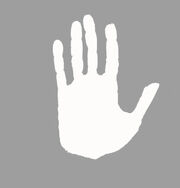| Theurgy | ||
| Major School of Magic. | ||
| This school draws its power from summoned gods. | ||
| ||
Theurgy is a form of magic. At its core Theurgy is the same as Demonology; the practice of contacting beings from another world and obtaining their aid. Theurgy focuses on the practice of summoning a deity and compelling them to perform a service of some kind. The relevant god may set conditions before the granting of the boon(s), but cannot refuse a correctly performed invocation [1]. Given its relationship with the gods it is natural to connect Theurgy to religion, and some theurgists style themselves as priests, however most theurgists work on a purely mercantile basis and even those who style themselves as priests recognize the gods have no real interest in human worship. Successfully summoning a deity requires reciting the correct formula in the correct way, and actual faith seems not to be necessary. About thirty gods are generally known to respond to prayers and summonings. Gods answered the prayers of theurgists more reliably prior to the end of the Great War.
It is known that demons sometimes "listen in" to prayers, and will sometimes answer a summoning. In fact, the skills and methodology of theurgy and demonology are similar enough that some theurgists call up demons on occasion. This practice is extremely rare, however, as association with and even extended proximity to demons leaves a sort of supernatural "stench" that will cause gods to "not see" an individual.
The practice of summoning dovetails into a number of secondary skills including the use of banishments, exorcisms, and abjurations. Theurgists primarily use these to get rid of unwanted spirits and demons they might accidentally summon or otherwise encounter.
Theurgists and Society[]
During the Great War theurgists contributed to the war effort of Ethshar by providing magical defensive support in the form of healing and defensive charms. Theurgists also performed intelligence functions by summoning appropriate deities and asking them questions about important strategic and tactical information.
Following the Great War theurgists mostly belong to various priesthoods. Theurgists market their services on a mercantile basis even while maintaining the trappings of temples and shrines. The practice of theurgy is not known to be banned in any location. Because of its proficiency at divination some theurgists find employment with courts of law, such as in Ethshar of the Sands.
Theurgists wear white robes with gold trim.
Some theurgists use an upraised hand as a signboard symbol. Like most people, theurgists will often have a shrine by the door.[1]
The Demerchan claim to have preserved many otherwise lost secrets of this art, and to thus have it's greatest modern practitioners working for them.
Distancing[]
At the end of the Great War the gods placed themselves at a much greater distance from the World. Whether they remain as interested as they had previously been is unknown, however they have made contacting them much more difficult. They did this by universally increasing their requirements for adherence to their incantations by theurgists and forbidding themselves to interact with the world without being summoned by a theurgist. This was a significant change, as prior to this event dieties would intervene at their own will and communicate with mortals of their own choosing.
Incantations and Prayers[]
The core of theurgy is the use of incantations to summon gods and prayers to seek their intervention. While theurgists have considered it impolite to explicitly rank the power of gods they freely rank the degree, or difficulty, of their invocations. The most complex of known incantations is rated as a sixth degree of difficulty, and there may not be a theurgist alive who can successfully complete a sixth degree incantation.[2] The ability to successfully complete a fifth degree incantation is considered an impressive feat.
Occasionally an invocation goes wrong and a theurgist will get a different god than they wanted, but excluding the God in Red there’s no record of finding a new god or better invocation this way for at least five hundred years. A theurgist is far more likely to simply invoke a god who is easier to reach.[3]
In addition to the specific incantations associated with particular gods, or prayers made off the cuff by individuals seeking intervention, there appear to be a number of general incantations. A successful theurgist might know a dozen prayers, and virtually no theurgist knows more than thirty.
Dismissals[]
As part of their practice Theurgists learn a variety of dismissals. These are useful if something goes wrong with a summoning, particularly if that something involves the unwanted presence of a demon.
The God in Red[]
"Dagyu forrek woprei shenyu mei ganau! Empro em!"
"Tur Menadem i di ali!"
- ↑ Fri 21 Jan 2011 12:20:42a sff.people.lwe post titled Re: Images in Ethshar

